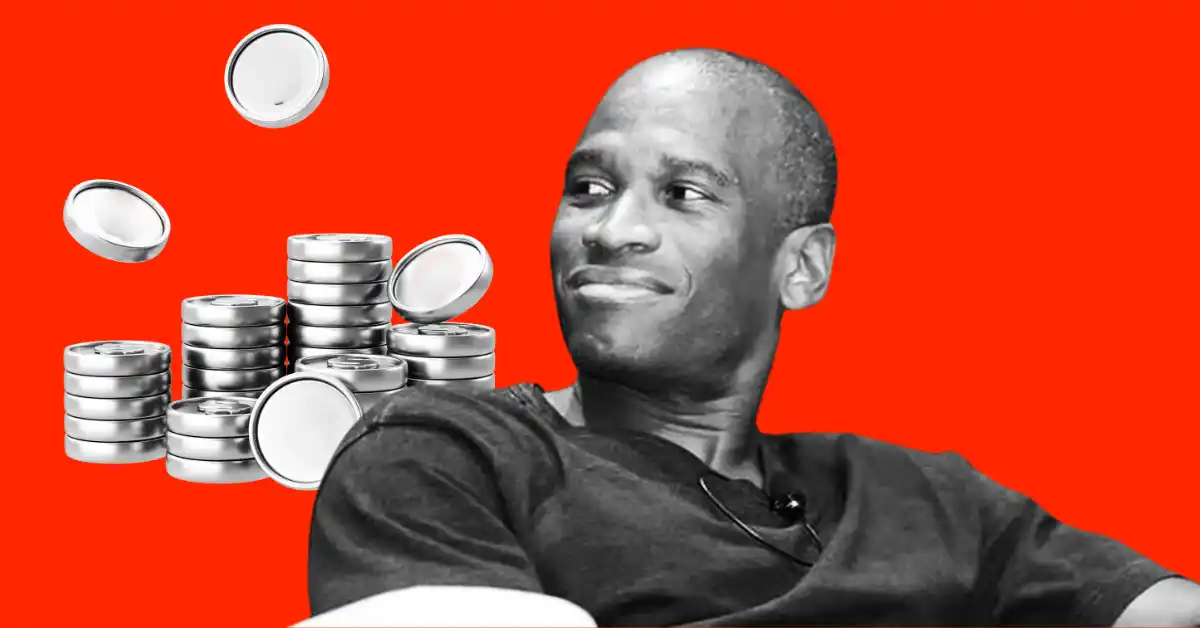Arthur Hayes’ Perspective on the U.S. Government’s Bitcoin Reserve
Introduction
Imagine a world where the U.S. government holds a significant reserve of Bitcoin. This isn’t a far-fetched scenario, given the increasing mainstream acceptance of cryptocurrencies. However, Arthur Hayes, the co-founder of BitMEX, presents a compelling argument against this idea. His insights, drawn from a deep understanding of the crypto market and global economics, offer a unique perspective on the potential implications of a U.S. Bitcoin reserve. This report explores Hayes’ arguments, the potential impacts on the crypto market, and the broader implications for the industry.
Hayes’ Background and Influence
Arthur Hayes’ journey in the cryptocurrency world is nothing short of remarkable. In 2016, he launched the XBTUSD perpetual swap on BitMEX, a move that revolutionized crypto trading. By 2018, BitMEX had become one of the largest Bitcoin trading platforms globally, with Hayes at the helm. Despite facing legal scrutiny in 2020, Hayes remained a key industry figure. His decision to step down as BitMEX CEO in 2021, following the settlement of U.S. legal issues, marked a new chapter in his career. Today, Hayes continues to focus on cryptocurrency, and his influential blog posts make his opinions on the U.S. Bitcoin reserve particularly noteworthy.
The Case Against a U.S. Bitcoin Reserve
Hayes has consistently argued against the idea of a U.S. Bitcoin reserve, presenting several compelling points:
Political Motives
Hayes believes that a U.S. Bitcoin reserve would be driven more by political interests than financial stability. He argues that such a reserve could become a “potent political weapon,” with the potential for political leverage. For instance, a drop in Bitcoin’s value could be used by opposing parties to criticize the administration’s economic policies. This political dimension adds unnecessary risk to the crypto market, making it an impractical concept. In a political landscape where every move is scrutinized, a Bitcoin reserve could become a liability rather than an asset.
Economic Implications
Hayes points out that the U.S. government’s high debt levels and the stereotype of “Bitcoin bros” could deter the government from adding more Bitcoin to its reserves beyond what it has already seized. He suggests that the mere threat of a U.S. Bitcoin reserve could create buying pressure, but the actual implementation would be fraught with challenges. The volatility of Bitcoin’s price could provide political leverage, further complicating the economic landscape. Moreover, the U.S. government’s high debt levels could make a Bitcoin reserve a risky proposition, given the potential for market manipulation and economic instability.
Market Impact
Hayes warns that a U.S. Bitcoin reserve could lead to a “vicious sell-off” around the time of political transitions, such as when Donald Trump took office. He believes that crypto investors have unrealistically high expectations for what a government reserve could achieve. Hayes also argues that the U.S. Bitcoin Reserve (BSR) is unlikely to happen, and even if it did, it would not be beneficial for the crypto industry. He predicts that long-term Bitcoin holders may eventually sell at a high fiat price, further destabilizing the market. This sell-off could lead to a significant drop in Bitcoin’s value, causing widespread panic among investors.
Potential Benefits and Risks
While Hayes is largely dismissive of the idea, he does acknowledge that a U.S. Bitcoin reserve could initially drive up the price of Bitcoin. However, he believes that the long-term risks outweigh any potential short-term gains. The political and economic uncertainties associated with such a reserve could lead to market instability and increased volatility.
Political Risks
The political risks are significant. Hayes argues that a Bitcoin reserve could become a tool for political maneuvering, with parties using the cryptocurrency’s price movements to score points against each other. This could lead to a situation where the reserve is used more for political gain than for economic stability. In a highly polarized political environment, a Bitcoin reserve could become a contentious issue, with each side trying to use it to their advantage.
Economic Risks
Economically, the high debt levels of the U.S. government and the potential for increased dollar liquidity could create a volatile environment. Hayes predicts that the U.S. government will need to increase dollar liquidity, which could propel Bitcoin’s price to new highs. However, this could also lead to a situation where the reserve is used to manipulate the market, further destabilizing the crypto industry. The increased liquidity could lead to inflation, making the U.S. dollar less valuable and driving up the price of Bitcoin. However, this could also lead to market manipulation, with the government using its reserve to influence the market.
The Unlikely Future of a U.S. Bitcoin Reserve
Arthur Hayes’ arguments against a U.S. Bitcoin reserve are compelling. He highlights the political and economic risks associated with such a move, suggesting that it is unlikely to materialize. While a U.S. Bitcoin reserve could initially drive up the price of Bitcoin, the long-term risks and uncertainties make it an impractical concept. Hayes’ insights provide a valuable perspective on the potential impacts of a U.S. Bitcoin reserve and the broader implications for the cryptocurrency industry.
As the crypto market continues to evolve, it is crucial to consider these arguments and the potential risks associated with government intervention in the crypto space. The future of Bitcoin and the broader cryptocurrency market will likely be shaped by these debates and the decisions made by key stakeholders. Whether or not a U.S. Bitcoin reserve becomes a reality, the discussions surrounding it will undoubtedly influence the direction of the crypto industry. The market’s resilience and adaptability will be tested, and only time will tell how these challenges will be overcome. The crypto community must remain vigilant, informed, and prepared for whatever lies ahead.












